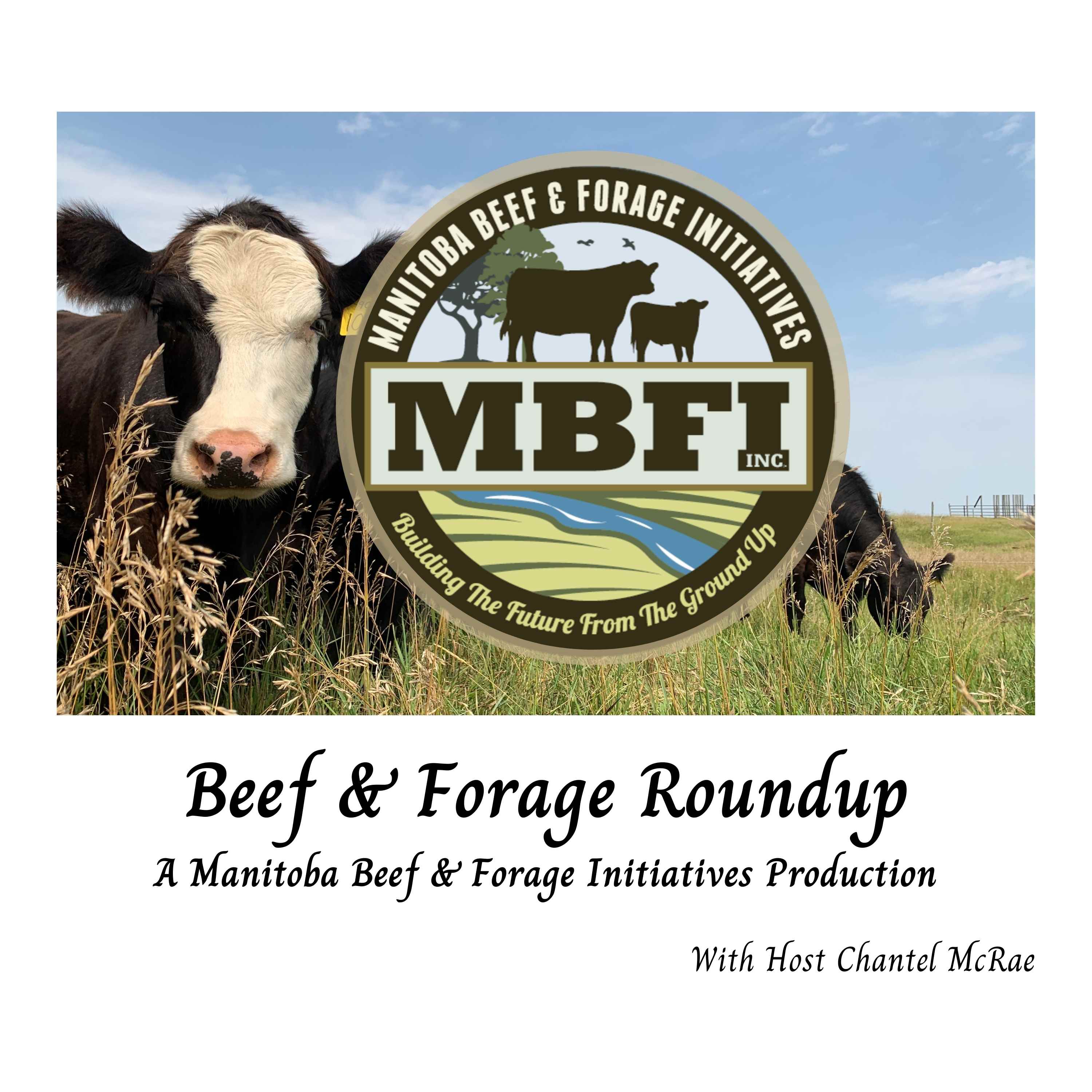Episode 35
The Carbon Cycle & Beef Production with Ed Bork
We are very excited to be talking with Dr. Edward Bork. In this episode, we dig into information on the study of greenhouse gasses and carbon cycling in beef production.
Dr. Edward Bork is the Mattheis Chair in Rangeland Ecology in Management, and Director of the Rangeland Research Institute at the University of Alberta. He has been teaching and conducting research for more than 25 years on basic and applied topics, including integrated weed control, grazing systems, fire ecology, forage production, agro-forestry, and recently, the role of rangelands in providing alternative ecosystem goods and services, including carbon storage, greenhouse gas reduction and biodiversity retention. He has supervised 48 graduate students, including 11 PhD students. Dr. Bork maintains close ties with the agriculture industry, and has given numerous extension talks.
Dr. Bork starts the episode with a brief explanation of what the carbon and methane cycles look like in different aspects of beef production, as well as the difference in the impact between carbon dioxide and methane when it comes to global warming. He continues with a definition and explanation of what carbon sources and what carbon sinks are and what the biogenic carbon cycle is, in order to familiarize listeners with common terms and components in the discussion of the carbon cycle in Canadian agriculture.
From there, he discusses the global temperature changes that have been noticed over time and the concerns with this from a global perspective, as well as the impact this has for producers and consumers here in Canada, in terms of both negative, and unintended positive effects.
We talk about the problems and challenges in how calculations for carbon sequestration and emissions are measured or monitored.
Dr. Bork discusses the role and positive impact of grasslands, native prairies, wetlands and forest areas play in carbon sequestration, as well as the impacts of converting these lands to conventional ag practices, both in terms of carbon sequestration and other ecological goods and services.
According to the Government of Canada website on Greenhouse Gas Emissions, Agriculture is rated 5th out of 7 sectors shown for the amount of emissions, and accounted for 10% of the total national emissions in 2020. Relatively speaking, the amount of global greenhouse gas emissions on an annual basis agriculture is responsible for a fairly small percentage of the total emissions. Dr. Bork shares why he thinks that the conversation seems to have such a focus on agriculture rather than other industries.
Dr. Bork also discusses the differences he sees between the impact of conventional agriculture versus regenerative practices, in terms of sequestration of carbon and practices producers can implement on their operations today to increase carbon sequestration. He also shares information on the benefits to producers of increasing soil carbon on their land.
We talk briefly about carbon credits and opportunities in the carbon credit markets and wrap up the conversation with some discussion on what is next for this research and what still needs to be done.
Dr. Bork welcomes your questions. Please contact him via email at: edward.bork@ualberta.ca
Carbon Cycle & Beef Cattle, Beef Cattle Research Council, 2022, obtained Jan 13, 2023
https://www.beefresearch.ca/topics/carbon-cycle-beef-cattle/
Greenhouse Gas Emissions, Government of Canada, 2022, obtained Jan 17, 2023
Dr. Bork has provided us with a list of a number of scientific articles that listeners may want to review for more information. If you would like to access a copy of these, please contact Dr. Bork and he will provide you with them. They may also be available by searching online.
Hewins, et. al. 2018 Sci Reports - Grazing and climate effects on soil organic carbon concentration and particle-size association in northern grasslands
Chaun, et. al. 2018 Ecosystems - Long-Term Grazing Accelerated Litter Decomposition in Northern Temperate Grasslands
Dobert, et. al. 2021 Geoderma - Adaptive multi-paddock grazing improves water infiltration in Canadian grassland soils
An, et. al. 2022 GCB Bioenergy - Quantifying past, current, and future forest carbon stocks within agroforestry systems in central Alberta, Canada
Bork, et. al 2021 Rangeland Ecology & Management - Comparative Pasture Management on Canadian Cattle Ranches With and Without Adaptive Multipaddock Grazing
Upama KC, et. al. 2022 Applied Soil Ecology - Adaptive multi-paddock grazing increases soil nutrient availability and bacteria to fungi ratio in grassland soils
Shrestha, et. al. 2020 Agronomy - Adaptive Multi-Paddock Grazing Lowers Soil Greenhouse Gas Emission Potential by Altering Extracellular Enzyme Activity
Bork, et. al. 2019 NRC Research Press - Herbage biomass and its relationship to soil carbon under long-term grazing in northern temperate grasslands
Lyseng, et. al. 2018 Plant Ecology - Long-term grazing impacts on vegetation diversity, composition, and exotic species presence across an aridity gradient in northern temperate grasslands
Grenke, et. al. 2022 Journal of Applied Ecology - Limited impacts of adaptive multi-paddock grazing systems on plant diversity in the Northern Great Plains
Chaun, et. al. 2020 Science of Total Environment - Limited impacts of adaptive multi-paddock grazing systems on plant diversity in the Northern Great Plains
Bork, et. at. 2020 Soil Use & Management - Soil carbon increases with long-term cattle stocking in northern temperate grasslands
The research programs and daily operations at MBFI would not be possible without the funding from the Province of Manitoba, Government of Canada, and Canadian Agricultural Partnership, as well as the partnership with Manitoba Agriculture, Manitoba Beef Producers (MBP),and Ducks Unlimited Canada (DUC).
We encourage you to follow MBFI on social media, or check out the website for more information on project findings and results, upcoming events and more!
Instagram: @MBBeefandForage
Facebook: @MBBeefandForage
Twitter: @MBBeefandForage
Website: www.mbfi.ca
Email address: information@mbfi.ca
Mary-Jane’s Phone Number: 431-255-0011
